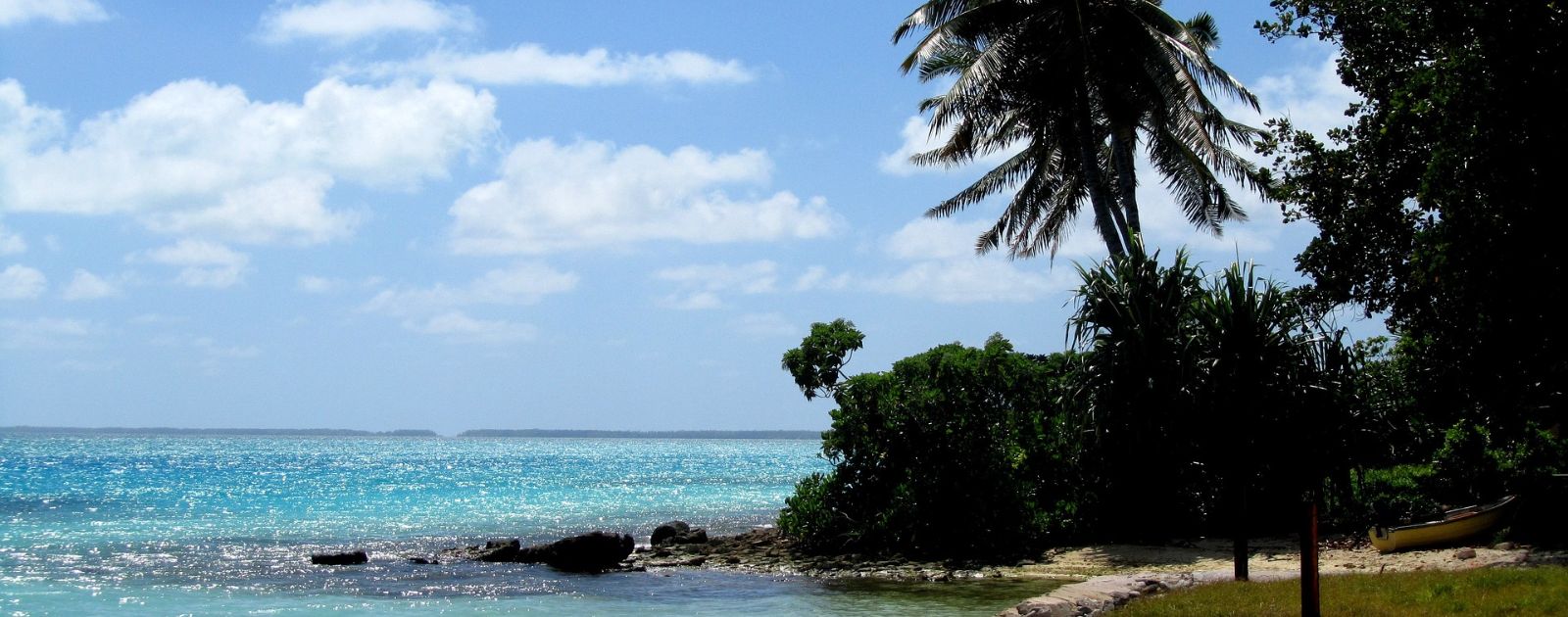Kiribati
As a least-developed country (LDC), Kiribati is a beneficiary of the EU's "Everything but Arms" (EBA) arrangement. The World Bank considers Kiribati a lower middle-income economy with a per-capita income of $2,289 in 2024. EU imports from Kiribati amounted to about €4.4 million in 2024, more than ten times the value in 2023 and the highest value on record. For the first time, Kiribati also made use of EBA preferences in 2024, with preferential exports of almost €0.6 million.
What is the EBA?
The EBA arrangement covers all LDCs as classified by the United Nations. This arrangement enables duty-free and quota-free access for all products originating in LDCs except for arms and ammunition. Unlike beneficiaries of the Standard GSP and GSP+, LDCs are not excluded from the scheme if they benefit from other preferential arrangements or agreements with the EU.

At a glance: EU preferential imports from EBA beneficiary countries (2024, € million)
0.1M (2024)
Population
Presidential Republic
Government
5.3% (2024)
GDP Growth
2.5% (2024)
Inflation
$ 0.3B (2024)
GDP
Facts about Kiribati's economy
Island Economy
Kiribati is a small island nation located in the Pacific Ocean in between Hawaii and Australia. Similar to other small island nations, Kiribati faces a series of challenges including the vulnerability to climate change, a highly dispersed population, difficult access to international markets as well as low domestic resources and limited arable land.
Export Products
Kiribati's top export products are frozen fish and fish fillets. They account for about 95% of total exports.
Trade Partners
Kiribati's most important trading partners are China and Pacific neighbours, the latter in 2024 led by New Zealand (14%), Singapore and Australia (11% each). Most imports, about 17%, originate from China, while Japan was the most important export market for products from Kiribati in 2024 (39% of total exports).
Economic Structure
Kiribati's economy is dominated by the services sector, which, driven mainly by public services, contributes the majority to the country's income. On the industrial side dominate fishing and sea salt production as well as clothing, furniture, and beverages. Those products mainly supply the domestic market.
Usage of EBA Preferences
For the first time in years, Kiribati took advantage of the EBA scheme in 2024. The preference utilisation rate was 27%.
Trade with the EU
Total trade with the EU amounted to €7 million in 2024. With a share of 3% of total trade, the EU only plays a minor role in Kiribati's trade relations.
Kiribati and the EU
Imports from Kiribati by product section (2024, € million)
Imports from Kiribati over time (€ million)
KIRIBATI AND THE EU GSP
Economic Impact
50%
Share of Kiribati's exports to the EU that were eligible for EBA preferences in 2024.
27%
Kiribati's preference utilisation rate in 2024.
61%
Share of zero-duty imports from Kiribati in 2024. Most imports are duty-free under normal EU tariffs.
Preference utilisation and export diversification
EU imports from Kiribati (€ million)
Preference utilisation (%) vs. total eligible imports (in € million)
Exports to the EU are very small, and Kiribati did not use EBA preferences in the years to 2023, but in 2024 eligible exports jumped to €2.1 million (fish), 27% of which made use of the preferences.
The largest product sections under EBA (€ million, 2024)
Kiribati used EBA preferences in 2024 for the first time in recent years for its fish exports to the EU. Other exports from Kiribati to the EU were minimal in 2024.
SUSTAINABLE DEVELOPMENT
As a beneficiary of the EBA scheme, Kiribati's preferential access to the EU market is not conditional on the ratification of international conventions. Kiribati has ratified three of the seven fundamental UN human rights conventions listed in the GSP Regulation as well as all eight core ILO conventions on the protection of labour rights. Moreover, Kiribati has ratified seven of the eight listed international conventions on the protection of the environment and the UN Convention against Corruption.
Core international conventions on human rights and labour standards
Ratified
- Convention on the Elimination of All Forms of Discrimination Against Women (1981)
- Convention Against Torture and other Cruel, Inhuman or Degrading Treatment or Punishment (1987)
- Convention on the Rights of the Child (1990)
- Convention concerning Forced or Compulsory Labour, No 29 (1930)
- Convention concerning Freedom of Association and Protection of the Right to Organise, No 87 (1948)
- Convention concerning the Application of the Principles of the Right to Organise and to Bargain Collectively, No 98 (1949)
- Convention concerning Equal Remuneration of Men and Women Workers for Work of Equal Value, No 100 (1951)
- Convention concerning the Abolition of Forced Labour, No 105 (1957)
- Convention concerning Discrimination in Respect of Employment and Occupation, No 111 (1958)
- Convention concerning Minimum Age for Admission to Employment, No 138 (1973)
- Convention concerning the Prohibition and Immediate Action for the Elimination of the Worst Forms of Child Labour, No 182 (1999)
Not Ratified
- Convention on the Prevention and Punishment of the Crime of Genocide (1948)
- International Convention on the Elimination of All Forms of Racial Discrimination (1969)
- International Covenant on Civil and Political Rights (1976)
- International Covenant on Economic Social and Cultural Rights (1976)
Additional Conventions
- Montreal Protocol on Substances that Deplete the Ozone Layer (1987)
- Basel Convention on the Control of Transboundary Movements of Hazardous Wastes and Their Disposal (1989)
- Convention on Biological Diversity (1992)
- The United Nations Framework Convention on Climate Change (1992)
- Cartagena Protocol on Biosafety (2000)
- Stockholm Convention on Persistent Organic Pollutants (2001)
- Kyoto Protocol to the United Nations Framework Convention on Climate Change (1998)
- United Nations Convention against Corruption (2004)
EU-Kiribati Bilateral Development Cooperation
DG INTPA
Access all info about EU-Pacific Islands Countries relations on the International Partnerships website.
